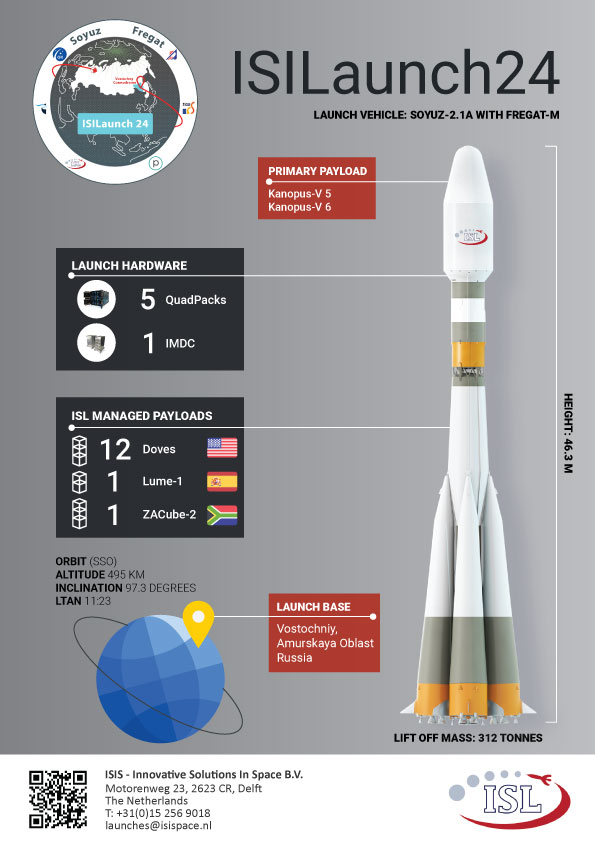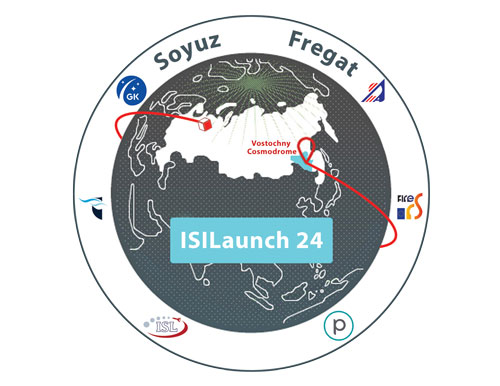Early this morning, Russia’s new premier space launch facility — the Vostochny Cosmodrome — saw the first successful flight of commercial payloads aboard a Soyuz 2.1A rocket.

Part of the payloads is provided by ISL (Innovative Space Logistics), the leading small satellite launch services operator of ISIS – Innovative Solutions In Space from the Delft, The Netherlands. The ISILaunch24 launch campaign is arranged on Soyuz rocket under contract with GK Launch Services and consists of 14 satellites. The satellites are accommodated in ISIS’ well-known QuadPack deployers, controlled by an ISIS flight sequencer, similar to previous ISILaunch campaigns on Soyuz. With more than 50 satellites already launched on Soyuz in the past, part of over ISL’s track record of more than 300 satellites brought to orbit in total, ISL is pleased to continue its cooperation with GK on launching with Soyuz in future, with capacity on launches planned through 2021.
The Flock 3k Payload consisting of twelve 3U Dove CubeSats was designed and built by Planet Labs Inc. (“Planet”), headquartered in San Francisco, USA. Flock 3k is Planet’s latest fleet of commercial, Earth Imaging satellites, which will be joining Planet’s currently on-orbit fleet of 100+ Dove satellites imaging the Earth at an unprecedented scale and frequency. The Flock 3k satellites have a mass of 5 kg each and have an expected lifetime of up to three years. Planet’s commercial satellite imagery and added value products are used to serve customers in government, industry, non-profits, and academia.
The spacecraft ZACube-2, created by experts of the Cape Peninsula University of Technological (CPUT) and French South African Institute of Technology (F’SATI) in South Africa, is a technology demonstrator. Its main payload is a receiver for the automatic identification of ships (AIS). Additionally, the spacecraft has near-infrared imaging equipment for detecting forest fires. The spacecraft’s weight is about 3.5 kg with a lifetime in orbit of approximately 2 years.
The spacecraft Lume-1 is a 2-unit CubeSat, developed by the University of Vigo, Spain. Lume-1 will be used as the space segment and communication platform for the FIRE–RS system for early detection of natural disasters, in particular, natural fires. The device is also a demonstrator of a number of new developments of the University of Vigo. The estimated service lifetime of the 2.5 kg spacecraft is 2 years.
Successful ISILaunch24 campaign – 14 satellites sent to space

